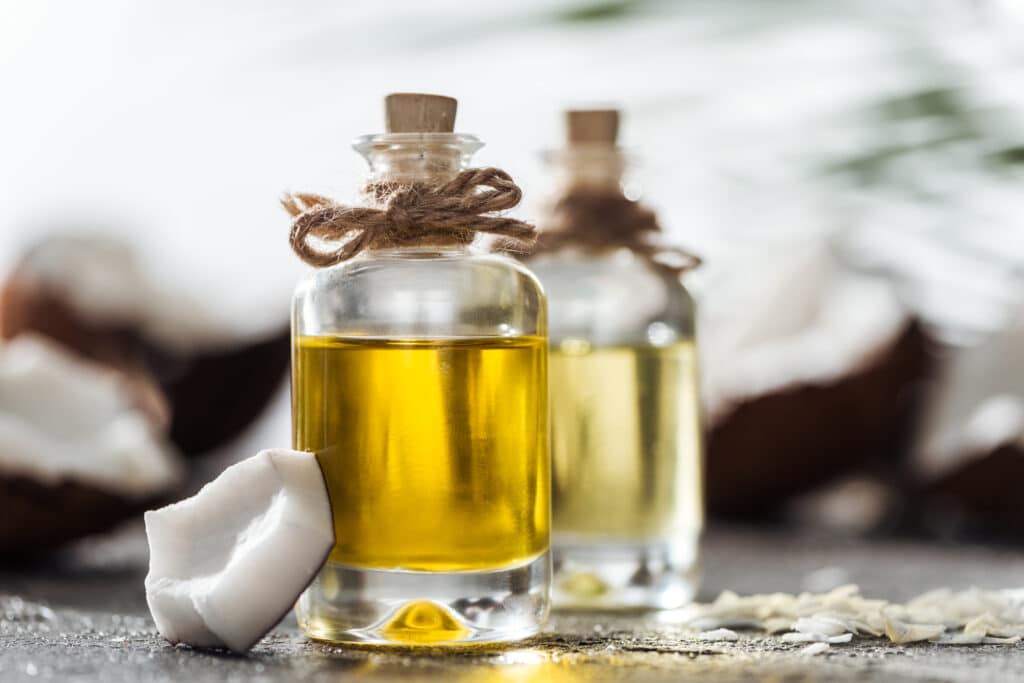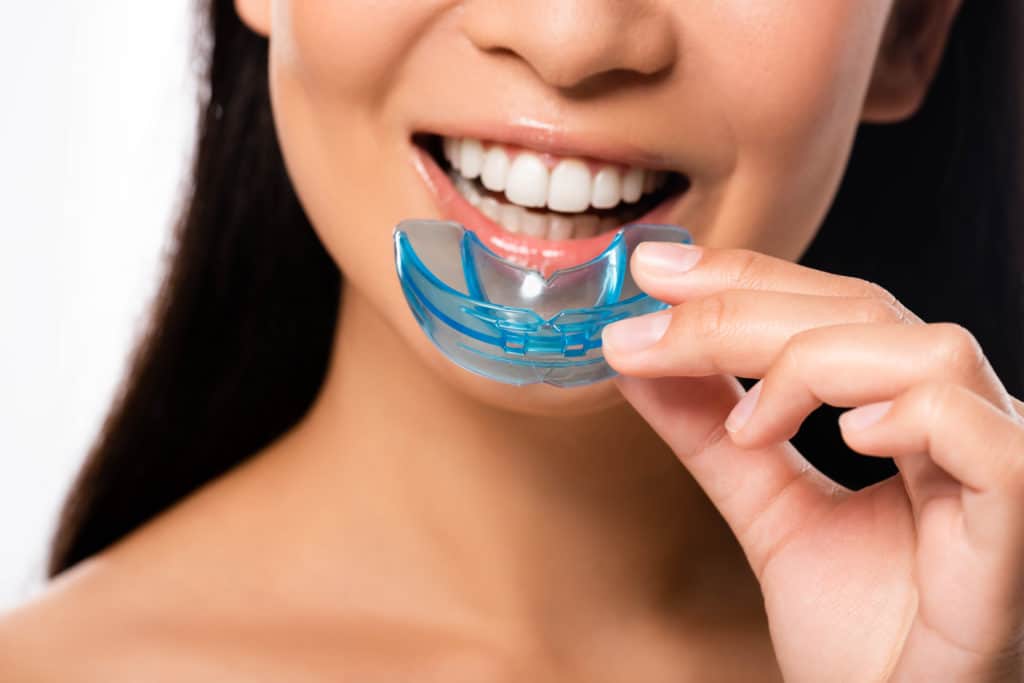Oil pulling, an ancient practice with its roots in traditional Ayurvedic medicine, has recently made a resurgence thanks to social media. Chances are, you’ve seen a video or two from a celebrity or influencer claiming that swishing oil around your mouth provides all kinds of oral health benefits, from plaque prevention to teeth whitening. Keep reading to learn whether this simple practice is really all that effective or if it’s just another passing trend.
What is Oil Pulling?

Oil pulling comes from the Ayurvedic tradition, which originated on the Indian subcontinent 3,000 to 5,000 years ago. It involves swishing a spoonful of coconut, sesame, or sunflower oil around the mouth for 15–20 minutes. This practice is believed to draw out toxins and bacteria, creating a healthier oral environment.
So, why has this practice endured for millennia? Can it really compete with the effectiveness of chlorhexidine mouthwash?
There isn’t a lot of clinical research on oil pulling, but recent studies have shown promising results. Scientists aren’t sure exactly how it works, with one prevailing theory that the saponification (soap-making) process that occurs when swishing oil has something to do with its oral health-enhancing properties. Some believe that the oil’s viscosity prevents plaque accumulation, while others hypothesize that the antioxidants found in the oil contribute to an antibiotic-like effect.
Benefits of Oil Pulling
Whatever the mechanism behind this practice’s effectiveness, most experts agree that it can, indeed, enhance oral health — or, at least, it can’t hurt.
Reduced Bacteria and Plaque
The primary benefit of oil pulling is its ability to reduce harmful bacteria in the mouth, which contribute to plaque formation and tooth decay. Different types of oil have been shown to fight different kinds of bacteria, contributing to a healthier oral environment and helping to prevent issues like tooth decay.

Improved Gum Health
Healthy gums are crucial for maintaining strong teeth. Oil pulling is associated with a reduction in gum inflammation and bleeding. The swishing action reaches nooks and crannies that brushing might miss, reducing the risk of gum disease.
Alleviation of Bad Breath
The antibacterial properties of the oils used in pulling can take care of bad breath by targeting its root cause — bacteria. In fact, sesame oil has been found to be as effective against halitosis as a chlorhexidine rinse.
Oral Thrush Treatment
Evidence suggests that oil pulling can treat oral thrush, a fungal infection in the mouth, by trapping and removing toxins and pathogens. Coconut oil is especially effective, as its antifungal properties allow it to kill the infection-causing yeast.
Affordability and Accessibility
At only a dollar or two per liter, common household oils are generally less expensive than specialized mouthwashes, making oil pulling a more affordable option for individuals looking to take care of their oral health on a budget.
Considerations and Cautions
While oil pulling may enhance oral health, it may not always be as effective as regular mouthwash. It’s also not a magical remedy for teeth whitening, no matter what you may have seen online.
If you’re already doing the basics (brushing twice per day, flossing at least once per day, and using mouthwash), you probably don’t need to incorporate oil pulling into your daily oral hygiene routine. If you haven’t already established these basic habits, start there — brushing and flossing are still the best ways to protect your teeth.
Oil pulling also comes with a significant time commitment. If you don’t have an extra 15–20 minutes every day to dedicate to your oral health, you’re better off using a regular mouthwash instead.

Tips and Techniques
If you’ve decided to try oil pulling, follow these steps:
- Choose the right oil: You can use any type of cooking oil, including coconut, olive, sesame, vegetable, and sunflower oils. You only need about a tablespoon.
- Timing is key: Aim for 15–20 minutes of swishing, but if you’ve just started oil pulling, you can slowly work up to the full amount of time. Set a timer and swish the oil around your mouth without swallowing it.
- Spit and rinse: Once you’re finished, spit the oil into a trash can or tissue. Avoid spitting it into the sink, as this can cause clogs. Rinse your mouth thoroughly with water and follow up with regular brushing.
Comprehensive Oral Healthcare
At Eric Felt DDS, we believe in giving our patients the information they need to make informed decisions about their oral health. If you have questions about how to care for your teeth, feel free to reach out to our expert team. With a little help from us, you can achieve a happy, healthy smile that will last a lifetime.








